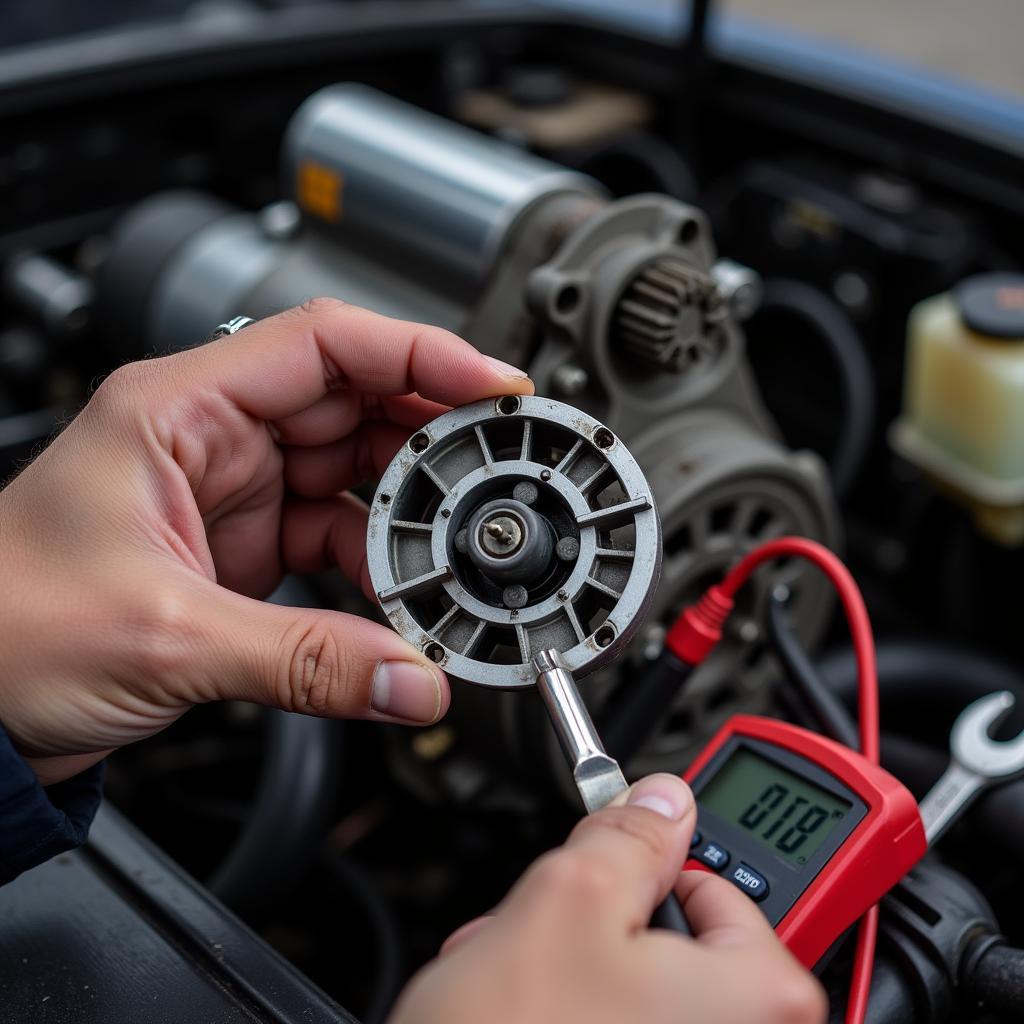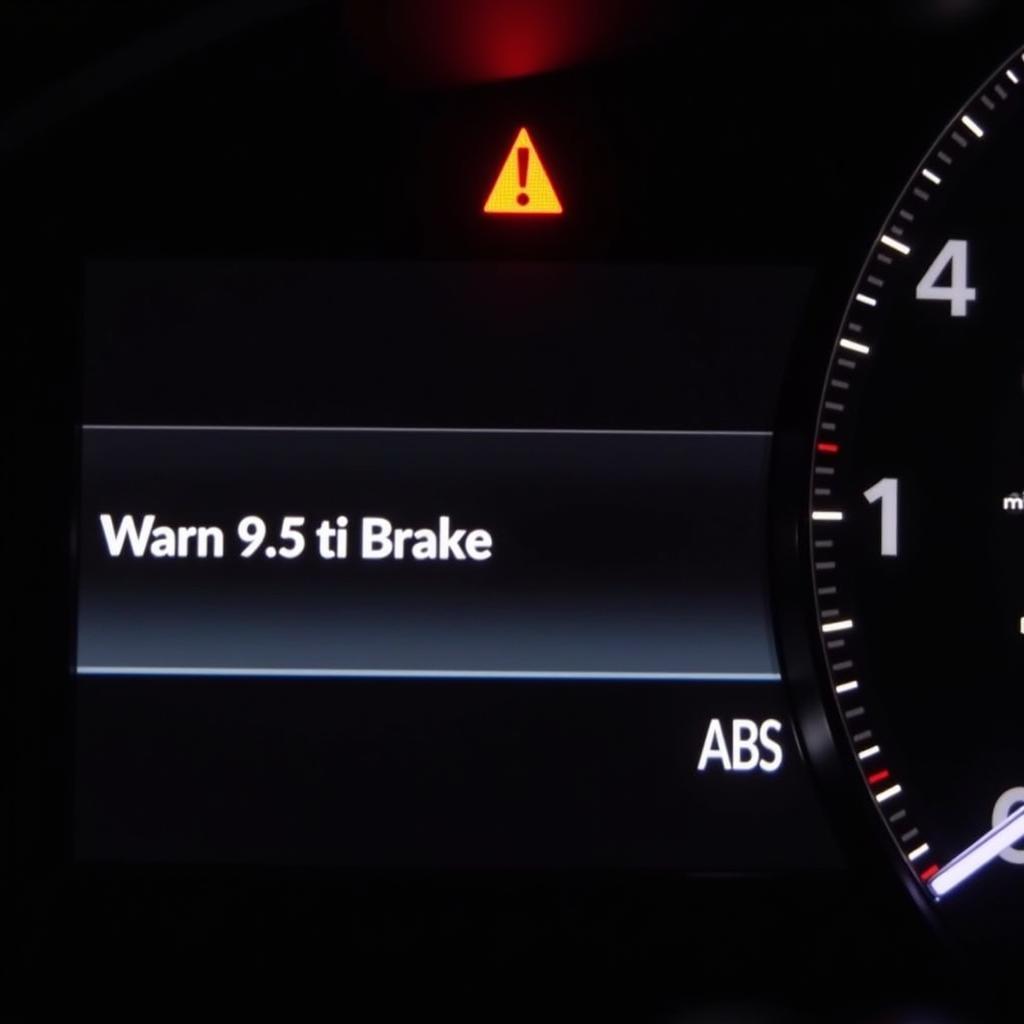A brake pad warning light illuminating on your dashboard, especially during an MOT test, can be unnerving. This usually signals worn brake pads, potentially leading to an MOT failure. This article will delve into the intricacies of brake pad warning lights, common causes for their illumination, and potential solutions to address this issue, ensuring your vehicle remains safe and roadworthy.
Understanding Your Brake Pad Warning Light
The brake pad warning light, often symbolized by a circle with parentheses on either side and dashed lines within, is designed to alert you about potential issues within your braking system. When illuminated, it signifies that your brake pads have worn down to a predetermined level, requiring inspection and likely replacement.
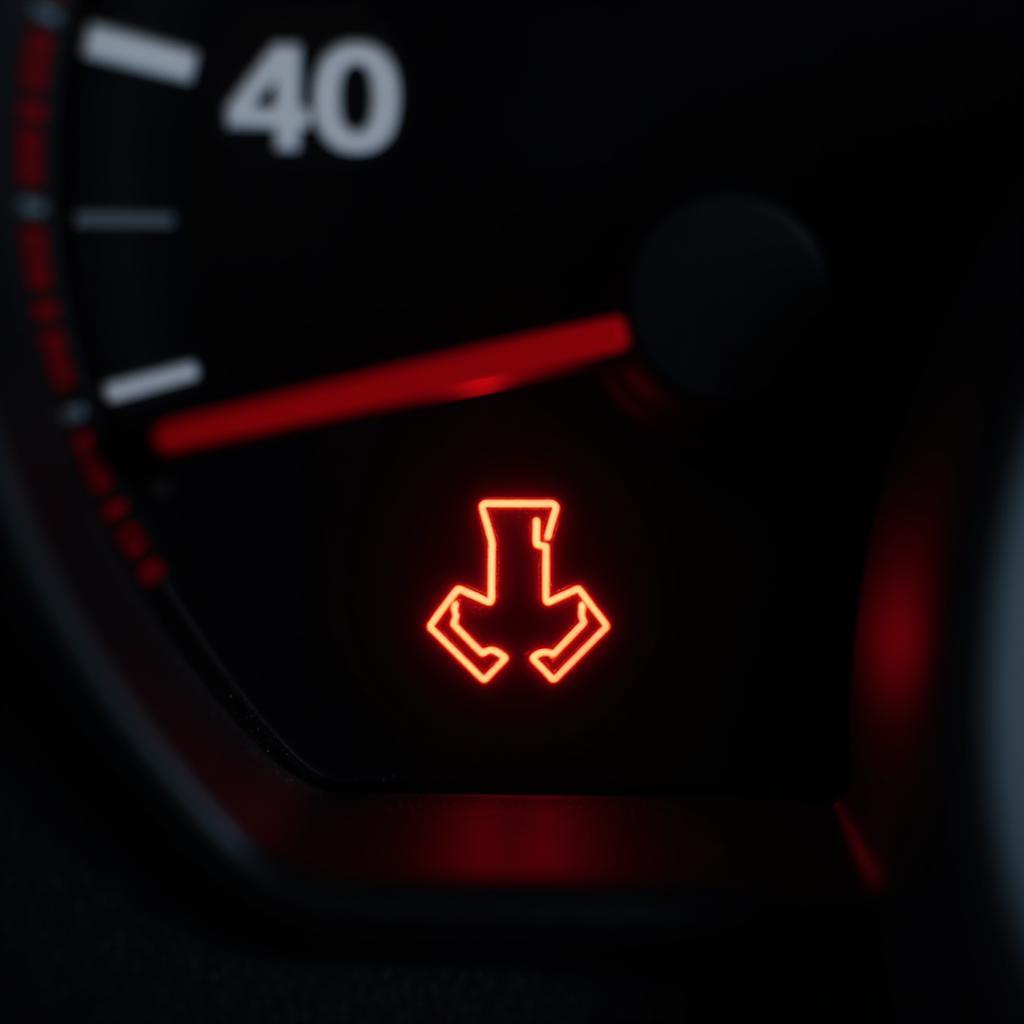 Brake Pad Warning Light on Dashboard
Brake Pad Warning Light on Dashboard
Ignoring this warning light can lead to further damage and compromise your safety.
Common Causes of Brake Pad Warning Light MOT Failure
Several factors can contribute to the brake pad warning light illuminating and potentially leading to an MOT failure. Here are some common culprits:
1. Worn Brake Pads
The most frequent cause is simply worn-out brake pads. As you apply the brakes, friction between the pads and rotors generates the stopping force. Over time, this friction gradually wears down the pads. Once they reach a certain thinness, a sensor triggers the warning light.
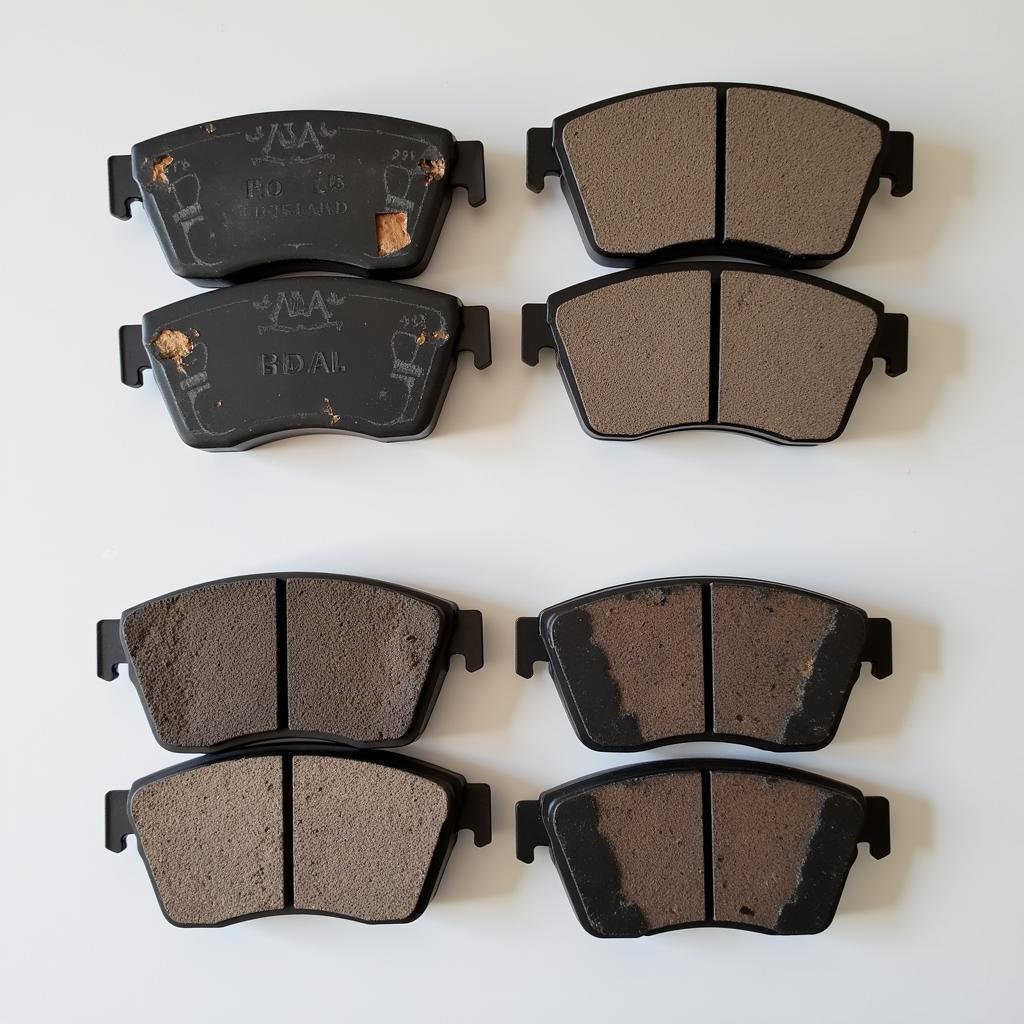 Worn Brake Pads Comparison
Worn Brake Pads Comparison
2. Damaged Brake Pad Sensor
Most modern vehicles employ brake pad wear sensors. These sensors, typically small metal tabs, are designed to make contact with the brake rotor when the pad reaches a critical wear level. If the sensor gets damaged or becomes disconnected, it can trigger the warning light prematurely.
3. Malfunctioning Brake Fluid Sensor
While primarily indicating low brake fluid, a malfunctioning brake fluid sensor can also trigger the brake pad warning light in some car models. Low brake fluid can signify a leak in the braking system, directly impacting braking performance.
4. Electrical Issues
Occasionally, electrical issues within the vehicle’s system, such as a faulty wiring harness or a malfunctioning instrument cluster, can cause the brake pad warning light to illuminate erroneously.
What to Do When Your Brake Pad Warning Light Illuminates
If you notice your brake pad warning light illuminated, particularly during or before your MOT test, it’s crucial to take immediate action:
- Don’t Panic, But Do Act Promptly: While a glowing brake pad warning light shouldn’t induce panic, it shouldn’t be ignored either.
- Inspect Your Brake Pads: If you’re comfortable with basic car maintenance, you can visually inspect your brake pads. Look for significant wear or if the pad thickness is nearing the minimum recommended level.
- Consult a Qualified Mechanic: The safest course of action is to consult a qualified mechanic specializing in brake repair. They can accurately diagnose the issue and recommend the appropriate course of action.
Solutions for Brake Pad Warning Light Issues
The solution to a brake pad warning light problem depends entirely on the underlying cause:
- Worn Brake Pads: If your brake pads are worn, replacement is the only remedy. Ensure you choose high-quality brake pads compatible with your vehicle make and model.
- Faulty Sensors: A mechanic can inspect the brake pad wear sensors and replace any damaged or malfunctioning ones.
- Low Brake Fluid: Address any brake fluid leaks before refilling the reservoir with the correct brake fluid type.
- Electrical Faults: A qualified auto electrician can diagnose and repair electrical issues causing the warning light to malfunction.
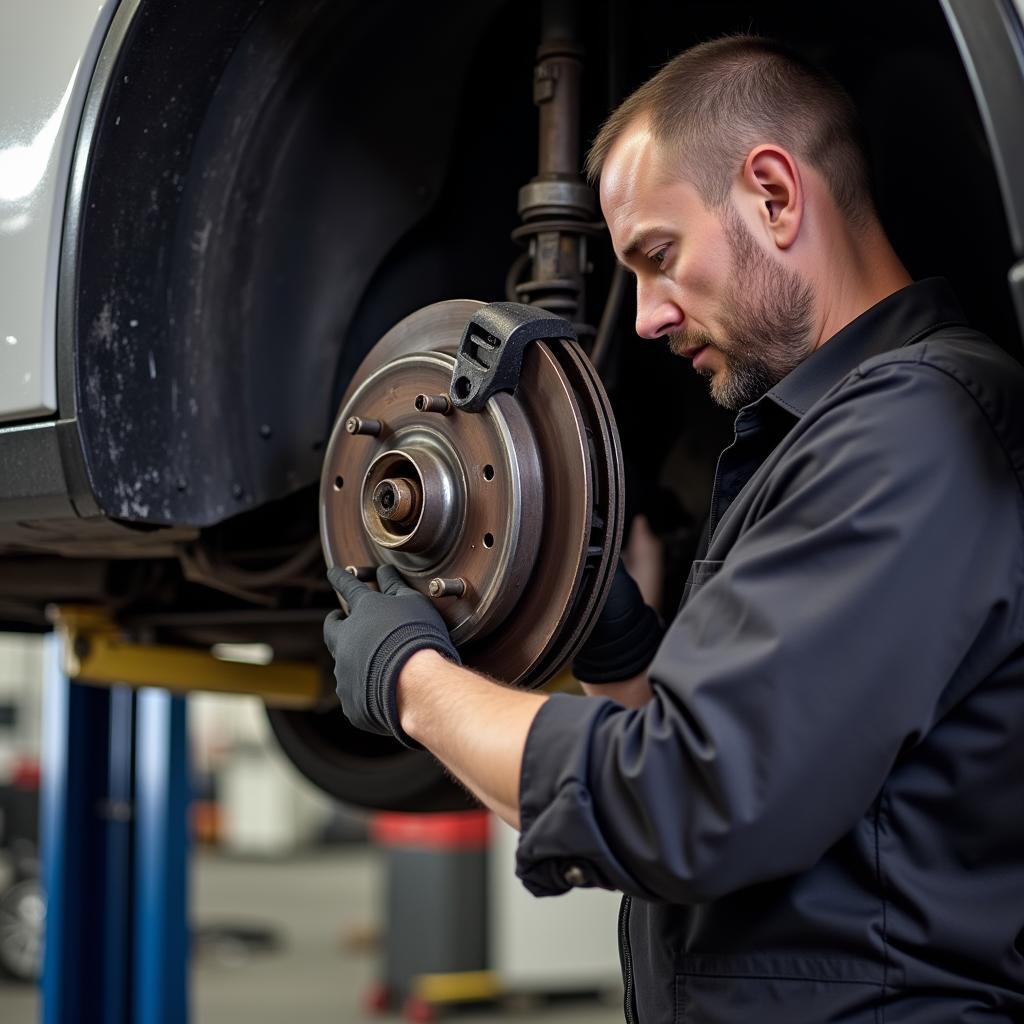 Mechanic Diagnosing Brake Issue
Mechanic Diagnosing Brake Issue
Preventing Future Brake Pad Warning Light Issues
Proactive maintenance can go a long way in preventing future brake pad warning light issues:
- Regular Brake Inspections: Schedule routine brake inspections with a qualified mechanic, particularly as your vehicle accumulates mileage.
- Mindful Driving Habits: Avoid harsh braking whenever possible. Gradual braking puts less stress on your brakes, extending their lifespan.
- Quality Brake Parts: When it’s time for brake pad replacement, invest in quality parts from reputable brands.
Brake Pad Warning Light and MOT Failure: Can You Drive With It On?
While driving short distances with an illuminated brake pad warning light might seem tempting, it’s strongly discouraged. Driving with severely worn brake pads significantly compromises your stopping distance, jeopardizing your safety and that of others on the road.
Furthermore, if your brake pad warning light is on due to a malfunctioning sensor or electrical issue, continuing to drive could mask a potentially more serious underlying brake problem.
Frequently Asked Questions
Here are answers to some common queries about brake pad warning lights:
Q: How much does it cost to replace brake pads?
A: The cost varies depending on your car’s make and model, labor costs, and the type of brake pads chosen.
Q: Can I replace my brake pads myself?
A: While possible, brake pad replacement requires mechanical knowledge and tools. It’s recommended to have a professional handle it.
Q: How long can I drive with the brake pad warning light on?
A: It’s unsafe to drive with the warning light on. Get it checked immediately.
Q: What happens if I ignore the brake pad warning light?
A: Ignoring the light can lead to further damage, costly repairs, and potentially dangerous driving conditions.
Q: Can I reset the brake pad warning light myself?
A: It’s not recommended to reset the light yourself without addressing the root cause.
Conclusion
A brake pad warning light illuminating on your dashboard, especially in conjunction with an MOT failure, necessitates immediate attention. Addressing the underlying cause is crucial not only for passing your MOT but more importantly, for ensuring the safety and roadworthiness of your vehicle.
Remember, timely maintenance and proactive care are key to maintaining optimal brake system performance and avoiding potentially dangerous situations on the road. For specific information about your car model, check out our guides on:
- bmw 1 series 2006 brake pad warning light reset
- nissan leaf brake warning light
- how to reset brake failure warning message on a spyder
Your safety and peace of mind are paramount.

